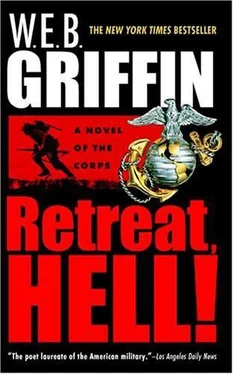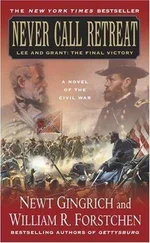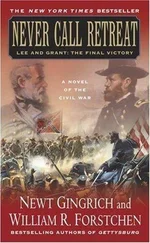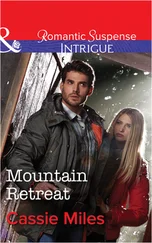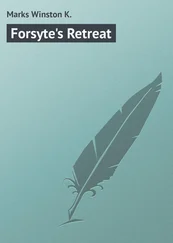"Go on, Ken," Howe said.
"If all three things are true, sir, then possibly he's had access to contingency plans which said the Chinese will intervene under such and such circumstances. ..."
"For example?"
"Maybe something vague, like we get too close to the Yalu River, and they feel we're not going to stop on the south riverbank there. There's a big electric-generating plant, the Suiho, on the Yalu. If we interrupted service from there, it would cause the Chinese a lot of trouble. Or maybe, for example, something specific, like we look like we're about to take Pyongyang. I don't know, sir."
"But you think this fellow has seen this, knows the trigger?"
"I think he's cocky because he believes the Chinese will come in, sir. But this is another of those cases, sir, where I don't know what the hell I'm talking about. He may not know any more about Chinese intentions than I do."
"If you were a betting man, Ken, what would the odds of Chinese intervention be?" Howe asked.
"Seven-three," McCoy said, "that they will."
"Can you think of anything that would increase the odds that they won't?"
"If we destroy the NK Army, maybe by chasing it halfway to the Yalu, then stop, they may not—may not—feel threatened."
"Two days ago, the Joint Chiefs authorized MacArthur to conduct military operations leading to the destruction of the North Korean armed forces north of the 38th Parallel," Howe said. "Did you hear that?"
"No, sir."
"Two caveats. Only South Korean troops can approach the Yalu, and our aircraft cannot fly over China or Russia."
"The Chinese won't care if our troops on their border are South Korean or American," McCoy said.
"You think that would change the odds?" Howe asked. "How bad?"
McCoy didn't reply directly.
"ROK troops on the Yalu would make it even worse," he said. "The Chinese would believe us, probably, if we said we weren't going across the river. But they don't know how much control we have of the ROKs, and would act accordingly."
"Changing the odds to?"
"Eight-two," McCoy said. "Maybe nine-one."
Howe exhaled audibly.
He looked at Charley Rogers, who was very carefully putting his arms into the sleeves of his fatigue jacket, on which the chevrons of a master sergeant had been stenciled in black paint that still looked wet.
"Much better, Charley," Howe said. "I would have hated to see you hauled off to wash pots in a field mess somewhere."
Then he turned back to McCoy.
"Forewarned is forearmed, Ken. There's a very determined-looking second lieutenant from the 7th Division outside the gate who wants his vehicles back. You need some help with that?"
"No, sir. Thank you. I saw that coming. That's one of the reasons I liberated the Russian jeep."
He turned to Zimmerman.
"Ernie, let them have the jeep and the weapons carrier. We'll see what we can scrounge from Tenth Corps or the division."
Zimmerman nodded and walked out of the garage.
"You about ready to head for Kimpo, Ken?" General Howe asked.
"Yes, sir."
"I was thinking I could ride with you in this magnificent vehicle of yours, and Zimmerman could ride in my jeep with Charley."
"Whatever you want to do, sir," McCoy said.
[TWO]
Kimpo Airfield
Seoul, South Korea
083S 29 September 195O
The terminal building at Kimpo had been in the line of fire of both sides since the war began, and was in pretty bad shape. Army engineer troops were already at work trying to make it functional, but at the moment base operations was two squad tents set up end to end and the tower was mounted on the back of an Air Force General Motors 6x6 truck.
Two platoons of military police from the 4th Military Police Company, whose usual mission was the protection of the X Corps Headquarters, had been sent to the airport to provide the necessary security for the arrival of General MacArthur.
They had quickly established three areas, informally known as (1) For The Brass; (2) For The Press; and (3) For Everybody Else.
The area for (1) The Brass was immediately adjacent to the squad tents serving as base operations. Cotton tape usually used to show safe lanes through minefields had been strung in two lines, ten yards apart, from iron stakes intended to support barbed-wire entanglements.
(2) The Press was thus ten yards from The Brass, and kept from joining them by large MPs stationed at three-yard intervals. Still farther away from base operations, behind The Press, was another double row of minefield tape strung through the loops on top of the barbed-wire rods. Behind this was sequestered (3) Everybody Else.
Everybody Else included everyone with some reason, however questionable, to be in the area. There were perhaps two hundred people in this category, officers and enlisted, Marines and soldiers.
The entire area was surrounded by still more tape on rods to keep the rest of the world away. This was guarded by MPs, and the outer of the two MP checkpoints was located here.
Under the supervision of a military police second lieutenant, who was sitting with his driver in a jeep equipped with a pedestal-mounted .30-caliber air-cooled machine gun, a sergeant and three other MPs stopped every approaching vehicle to determine in which area the passengers belonged, if any, and to show them where to park their vehicles.
Getting a glimpse of General of the Army Douglas MacArthur in the flesh was right up there with, say, getting a look at Marilyn Monroe or Bob Hope.
No one really knew how the word of his pending arrival had gotten out, but no one was surprised that it had.
"Lieutenant!" the MP sergeant called when he saw the funny-looking vehicle fourth in line, and thought, but could not be sure, that he saw silver stars gleaming on the collar points of the passenger.
The MP lieutenant got out of his jeep in time to be at the sergeant's side when the funny-looking vehicle rolled up. His attention on the vehicle, he did not at first see the stars on General Howe's fatigues.
Then he did, jerked to attention, and saluted.
"Sorry, sir," he said. "The General's star is not mounted on the bumper, and I didn't—"
"It's not my vehicle," Howe said reasonably. "No problem."
"Sir, VIP parking is right beside the tent," the lieutenant said, pointing.
"Thank you," Howe said. "The two in the jeep behind us are with us."
The lieutenant had seen the people in the jeep were a Marine master sergeant—he could tell because his chevrons were painted—and a warrant officer, and thus falling into Category (3), Everybody Else, but the lieutenant had been in the service long enough to know that it is far wiser to go along with general officers than to argue with them.
"Yes, sir," the lieutenant said, and raised his hand to salute again.
When both vehicles were out of earshot, the sergeant asked the lieutenant, "Sir, what the hell was that?"
"Damned if I know," the lieutenant confessed. "What was that, a Russian jeep?"
A high-pitched voice from The Press caught their attention.
The voice had screamed, "McCoy, you sonofabitch!"
The lieutenant and the sergeant looked. One of the members of The Press had ducked under the minefield tape and was running toward the Russian jeep, which slowed and then stopped.
Two MPs rushed toward the member of The Press to keep the Fourth Estate where it belonged. The lieutenant and the sergeant rushed to join them.
The journalist, who had two 35-mm cameras hanging from the neck, nimbly dodged the two MPs intent on maintaining the established order, by force if necessary, reached the Russian jeep, and quickly scrambled into the backseat.
The lieutenant now could identify the errant member of the Fourth Estate as Miss Jeanette Priestly of the Chicago Tribune, primarily because as she climbed into the Russian jeep she dislodged her brimmed fatigue cap and long blond hair cascaded to her shoulders.
Читать дальше
